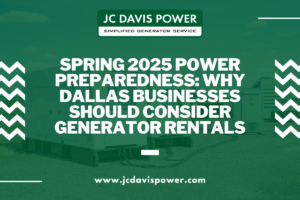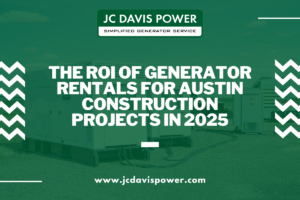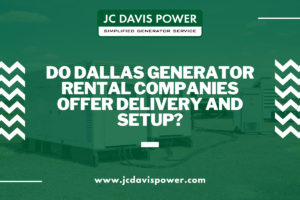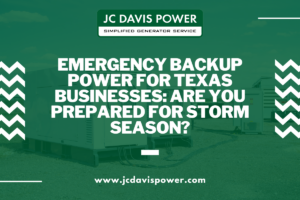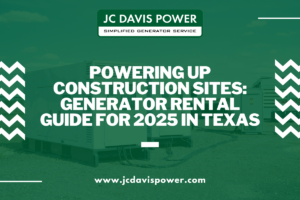In today’s fast-paced business world, uninterrupted power supply is crucial for maintaining productivity and efficiency. Mobile generators have become a reliable solution for businesses seeking backup power during outages or as a primary power source in remote locations. However, operating mobile generators safely requires adherence to specific protocols to prevent accidents, injuries, and equipment damage. This comprehensive guide will provide businesses with the essential safety protocols for operating mobile generators, ensuring a safe and reliable power supply.
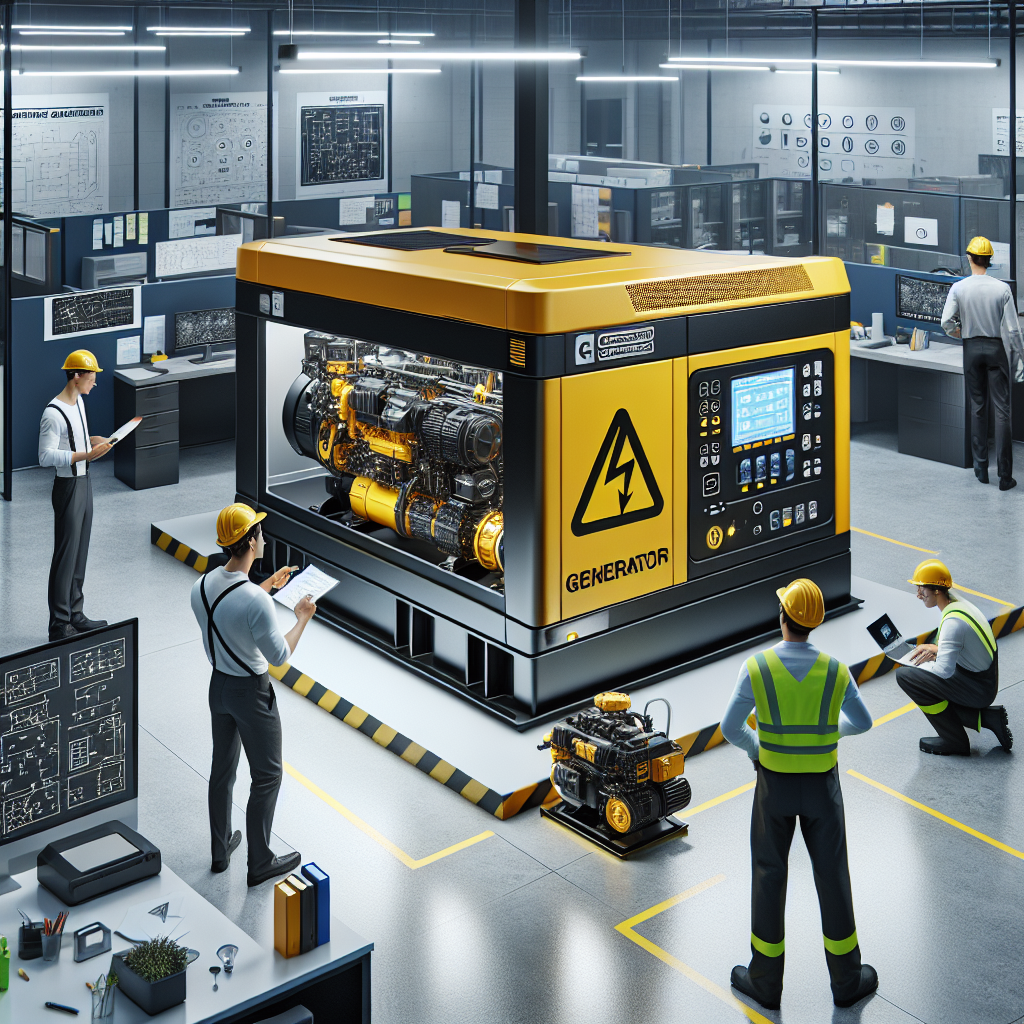
Site Preparation and Generator Placement:
Choosing a Suitable Location:
- Outdoor Area: Select an outdoor area that is well-ventilated to ensure proper air circulation and prevent the buildup of carbon monoxide, a toxic gas produced by generators.
- Distance from Buildings: Place the generator away from buildings, windows, and air intakes to minimize the risk of carbon monoxide entering enclosed spaces. Maintain a safe distance to prevent potential hazards.
- Airflow Considerations: Choose a location that allows for proper airflow around the generator. Avoid placing it in confined spaces or near obstructions that may restrict air movement. Adequate airflow is crucial for efficient operation and cooling.
Maintaining Proper Clearance:
- Clearance for Airflow: Ensure sufficient clearance around the generator to allow for proper airflow. This prevents overheating and ensures optimal performance. Follow the manufacturer’s guidelines for specific clearance requirements.
- Access for Maintenance: Consider accessibility when positioning the generator. Leave enough space around it to allow for easy maintenance and servicing. This includes space for refueling, oil changes, and other routine maintenance tasks.
Securing the Generator:
- Level Surface: Place the generator on a level surface to ensure stability and prevent tipping. Uneven surfaces can cause the generator to vibrate excessively, leading to potential damage or safety hazards.
- Anchoring Methods: Secure the generator using appropriate anchoring methods to prevent movement or tipping. This is especially important in areas prone to strong winds or seismic activity. Follow the manufacturer’s instructions for recommended anchoring methods.
- Stability Checks: Regularly inspect the generator’s stability and ensure that the anchoring methods are secure. This helps prevent accidents and ensures the generator’s safe operation.
Fuel Handling and Storage:
Proper Fuel Usage:
- Always adhere to the fuel type specified in the generator’s manual. This information is crucial for ensuring optimal performance and preventing damage to the generator.
- Refrain from mixing different fuel types or using additives. Mixing fuels can lead to engine problems and void the generator’s warranty. Additives, unless specifically recommended by the manufacturer, can also cause issues.
Safe Fuel Storage:
- Store fuel in approved containers that meet safety standards. These containers are designed to prevent leaks and spills, ensuring the safe storage of fuel.
- Choose a secure, well-ventilated area for fuel storage. Keep the area free from debris and potential ignition sources, such as open flames or sparks.
- Maintain a safe distance between fuel storage and heat sources, such as furnaces or water heaters. Heat can cause fuel to expand and potentially lead to container rupture.
Refueling Safely:
- Before refueling, turn off the generator and allow it to cool down completely. Refueling a hot generator poses a fire hazard.
- Use a funnel to transfer fuel from the container to the generator’s tank. This helps prevent spills and minimizes the risk of fuel contacting the generator’s hot surfaces.
- Avoid overfilling the fuel tank. Leave some space to allow for fuel expansion, especially in hot weather. Overfilling can lead to fuel leakage and potential fire hazards.
Electrical Safety:
Ensuring electrical safety is paramount when operating a generator. Here are some crucial measures to take:
Grounding the Generator:
- Connect the generator to a proper grounding system using a grounding rod or grounding wire. This crucial step helps prevent electrical shocks and ensures safe operation by providing a path for excess electricity to flow into the earth.
- Ensure the grounding system is adequate for the generator’s size and power output. An improperly grounded generator can pose a significant safety hazard.
Proper Cords and Connections:
- Utilize heavy-duty extension cords specifically designed for outdoor use and rated for the generator’s electrical load. These cords are typically thicker and can handle the higher amperage generated by the generator.
- Inspect extension cords regularly for damage, such as cuts, cracks, or exposed wires. Never use damaged cords as they pose a fire hazard.
- Ensure all connections are tight and secure to prevent arcing or sparking, which can lead to electrical fires.
Avoiding Overloading:
- Never exceed the generator’s rated capacity. Overloading the generator can lead to overheating, damage to the generator, and potential fire hazards.
- Check the generator’s owner’s manual to determine its rated capacity in watts or amps.
- Avoid connecting too many appliances or devices to the generator simultaneously. If you need to power multiple items, use a power distribution box to manage the load safely.
Operation and Maintenance:
Follow Manufacturer’s Instructions:
- Thoroughly read and comprehend the generator’s manual provided by the manufacturer.
- Strictly adhere to the guidelines and instructions outlined in the manual for safe operation and maintenance.
- Familiarize yourself with the generator’s specific features, controls, and safety mechanisms.
Regular Inspections:
- Conduct regular inspections of the generator to ensure its proper functioning and prevent potential issues.
- Check for fuel leaks, loose connections, and any signs of damage or wear on components.
- Inspect the generator’s exterior for any cracks, dents, or corrosion.
- Monitor the generator’s performance during operation, paying attention to unusual noises, vibrations, or odors.
Proper Maintenance:
- Perform routine maintenance tasks to keep the generator in optimal condition and extend its lifespan.
- Change the oil and oil filter according to the manufacturer’s recommended intervals.
- Replace air filters regularly to ensure proper airflow and prevent engine damage.
- Clean the generator’s exterior and interior to remove dirt, debris, and any accumulated grime.
- Inspect and tighten all connections, including electrical terminals and fuel lines, to prevent loose connections and potential hazards.
Emergency Preparedness:
Develop an Emergency Plan:
- Create a detailed emergency plan that outlines the steps to be taken in the event of a power outage or other emergency.
- Include procedures for operating the generator, evacuating the premises, and contacting emergency services.
- Ensure that all employees are familiar with the plan and know their roles and responsibilities.
Train Personnel:
- Provide comprehensive training to employees on the safe operation of the generator.
- Train employees on emergency procedures, including evacuation routes, fire safety, and first aid.
- Conduct regular drills to ensure that employees are prepared to respond effectively to emergencies.
Have a Fire Extinguisher Nearby:
- Keep a fire extinguisher readily accessible in the vicinity of the generator.
- Ensure that the fire extinguisher is properly maintained and inspected regularly.
- Train employees on how to use the fire extinguisher safely and effectively.
Conclusion:
By following these safety protocols, businesses can ensure the safe and reliable operation of mobile generators, minimizing risks and maximizing the benefits of backup power. JC Davis Power Rentals is a leading provider of mobile generator rental services, committed to delivering reliable power solutions and prioritizing safety. Contact JC Davis Power Rentals for your power needs and experience the difference of working with a trusted partner in the industry.
Contact JC Davis Power Rentals today to learn more about our mobile generator rental services and how we can help you power your business safely and efficiently.
